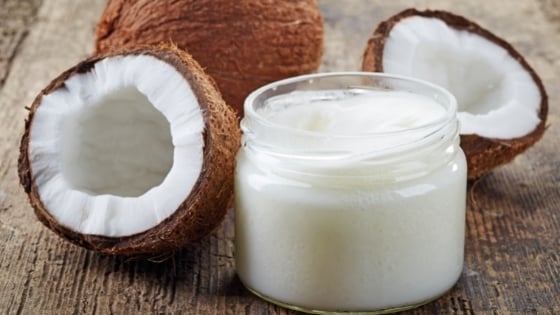Nowadays, searching for a clean dietary energy source can be quite difficult for the average consumer. While caffeine and sugar can be found practically everywhere and can prove to be very effective sources of energy, these unclean dietary sources can have many unwanted side effects, with addiction being perhaps the most undesirable of all.
However, there exists a clean dietary source that can provide great energy along with several other health benefits. This amazing source is MCT Oil.
What is MCT Oil?
The MCT in MCT oil stands for medium-chain triglycerides. Another common term is medium-chain fatty acids. Sparring you much scientific jargon, there are three types of fats, and MCT belongs to one of these categories. These categories are short-chain, medium-chain, and long-chain fats with MCT oil belonging to the medium-chain category.
All of these categories contain a certain number of carbon atoms. Short chains have 5 or lower, medium chains have anywhere from 6 to 12, and long chains have 12 or more. Essentially, the fewer carbon atoms, the quicker the substance can be absorbed into the body.
The category of medium-chain fats has four different types. The four types of medium-chain fats and their carbon atom count are caproic acid (6), caprylic acid (8), capric acid (10), and lauric acid (12). Because each of these types has a lower amount of carbon, they can be absorbed into the body much easier and faster than any long-chain fat.
Most MCT oils are made out of entirely caprylic acid or capric acid or a mix of the two. This is because caproic acid has an unpleasant taste, and lauric acid is often present in only small amounts.
What makes medium-chain fats so appealing to consumers is that they go straight to the liver, where they can be instantly converted into an energy source or ketones. Ketones are formed as a byproduct when the liver breaks down a large amount of fat. The interesting part about ketones is that they can move from the blood to the brain, where they can be used as an alternative energy source to the commonly used source glucose.

However, it’s important to clarify that ketones are only produced when there is a shortage of carbohydrates in the body. Glucose is always the preferred energy source to the brain. So for those who follow a diet where carbohydrates are cut out or reduced, such as the keto diet, ketones are more likely to be produced.
What are the Health Benefits of MCT Oil?
Besides MCT Oil’s potential as an energy source, this product has a vast array of several other benefits, including:
- Weight Loss: MCT Oil is lower in calorie count than long-chain fats, is rarely stored as fat, and helps to curb appetite, making for a powerful weight loss aid.
- Better Gut Health: MCT Oil is a natural antibiotic that can help to balance bad bacteria in the gut.
- Better Heart Health: Clinical trials have discovered that MCT Oil can reduce the amount of LDL (bad cholesterol) and increase HDL (good cholesterol) in the blood.
- Better Brain Health: MCT Oil’s ketones serve as an efficient energy source for the brain and can help improve cognitive function.
Where To Find MCT Oil?
MCT Oil can be found from natural food sources or in a concentrated format such as a liquid or supplement for consumption. The most common natural food source is coconut oil. This is because the majority of coconut oil’s fatty content is made up of medium-chain fats.
Some other natural food sources are palm kernel oil, whole milk, and butter. Though, whole milk and butter possess a much smaller MCT oil content than palm kernel oil, 9% and 8% versus 54%, according to healthline.com.

For those who wish to consume a higher amount of MCT Oil, the product can be purchased in a concentrated oil form. The oil is made through the process of fragmentation, where the MCTs are extracted and collected from a natural food source.
The body better absorbs this format due to its pure makeup. However, this format is usually sought after for those who need or desire a high amount of MCTs.
Ways to Use MCT Oil
The concentrated oil format of MCT Oil is very flexible in terms of usage. The product is often odorless and tasteless so that it can be added to virtually anything.
The oil is commonly used in smoothies, shakes, salad dressings, and much more. Many users add it to their morning coffee in a special recipe called “bulletproof coffee,” composed of drip coffee, MCT Oil, and grass-fed, unsalted butter mixed in a blender. Another common use is an addition to an energy drink.
This is because MCT Oil evens out the effects of caffeine and can minimize the crash.

You can also cook with MCT Oil. However, the smoke point is 320F, so it is recommended for low to medium temperature cooking. For the natural food sources of MCT Oil, follow the smoke point of each corresponding product.
MCT Oil Dosage
Currently, there is not an official defined tolerable upper intake level (UL) for MCT Oil. Though, the recommended maximum daily dose is 4–7 tablespoons or 60–100 mL. Most studies have used a range of 1-5 tablespoons daily.
There have been no major side effects reported from taking MCT Oil. However, minor side effects can occur, including nausea, vomiting, diarrhea, and upset stomach. To avoid these side effects, it is best to start with a smaller dose and gradually move up over time. If side effects persist, it’s best to see your primary care physician for further guidance.
MCT Oil in a Nutshell
In short, MCT Oil is medium-chain fat that is more easily absorbed into the body than long-chain fats due to medium-chain fat's lower carbon count. MCT Oil's primary benefit is its potential as an energy source from ketone production in the liver. Ketones serve as a secondary energy source to the brain in the absence of glucose and are only produced when there is a shortage of carbohydrates in the body.
MCT Oil can be found in natural sources, such as coconut oil and palm oil, or in a concentrated oil format made via the process of fragmentation. The concentrated oil is very versatile as it is odorless and tasteless so it can be used in just about anything. In terms of dosage, it is best to start out small and work up and not exceed the recommended amount of 4-7 tablespoons daily.
Our team at Assuaged would love to know what you think about MCT Oil! Leave a comment below, we'd love to hear what you have to say!
References
Aieta, F. (2020). MCT Oil: The Benefits, Risks, and How to Use.
Brown, M. (2020). MCT Oil 101: A Review of Medium-Chain Triglycerides.
MarcAurele, L. (2019). WHAT IS MCT OIL AND WHERE DOES IT COME FROM?
















